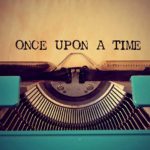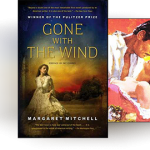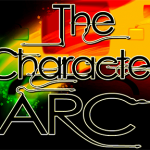There are essential dialogue writing rules to follow if one expects to write a good story. Dialogue is what keeps the story interesting and moving quickly for the reader
Short Story Writing
The Writing Style of Agatha Christie
The works of Dame Agatha Christie are still a part of popular culture. In a writing career lasting more than 55 years, she wrote 72 novels (66 mystery novels and 6 romance novels) and 15 short story collections – a body of work that remains unparalleled in any genre
Writing Sleuths – Pet Detectives
This article defines the role of a pet detective, their skill set and tools, and techniques writers can apply to develop such a character.
Writing Sleuths – Five Tips For Developing Bodyguard Characters
The fearless, protective bodyguard who is willing to put his/her life on the line to protect a client has long been a popular character in books, TV, and movies
Writing to Convey Drama and Place – Techniques to Keep Readers Reading
You often hope to convey some drama or sense of place in your writing. What if you were able to describe matters in a way that imparted feeling and not just factual information?
Writing Your Family History and Keeping Yours Alive
Digging into your family’s past and writing about the people and events you discover can be a fascinating endeavor.
Writing a Comedy Church Skit – How to Create Funny Characters
You don’t have to be a professional writer to create funny characters and humorous drama that makes a spiritual impact on your church congregation.
Write a Story Starting With I Always Thought That I Would
Learn how to start a story with ‘I Always Thought That I Would.’ This prompt can be very useful to help you start your creative short story.
Who Wants to Be a Screenwriter?
Do you love the idea of writing a screenplay? Being a screenwriter requires dedication and perseverance. Learn if the art of screenwriting is right for you.
Finding Age Appropriate Words When Writing For Children
Writing in general can be a tough business; writing for children is even tougher. Writing for children requires you to use words that are age appropriate.
Using Character Sheets in Fiction Writing
For fiction, you need the right combination of plot, action, description and character development to bring your story to life for your reader.
How to Use Weather to Set the Scene
The weather is so much more than how wet you’re getting. It’s amazing how many writers overlook the weather as a useful tool in both setting and also in telling the story
Reasons Why Shakespeare is Called “The Bard”
William Shakespeare is also referred to as ‘The Bard’. The term bard originally meant a friend who likes writing poems indeed Shakespeare gained many friends through his plays
Test Your Proofreading Skills: Complete This Exercise
Many proofreading exercise make the mistake of confronting the trainee proof reader with errors in abundance. Every other line contains a spelling error, grammatical gaffe or stylistic slip-up. In reality, however, you’re unlikely to find more than two or three errors
Plotting in Storytelling
And if there are no rules, why on earth would anyone want to write about the writing process? If there are no rules, what is the point in scripting an article such as this one?
9 Steps to Write the Best Short Story
Whenever I begin a short story, I remind myself of two things: to try to get in touch with readers’ senses as much as possible by writing something to see, hear, touch, smell, taste, and feel (emotionally), and to try to keep nine points, specifically, in mind when writing my story in hopes of composing a tightly-written story that sticks in readers’ minds. Those nine points are as followed
How to Write Juicy Short-Story Introductions
The awful truth is that no matter how fabulous your story is, if your introduction is lame, your readers won’t go further than the first few paragraphs. So it is definitely something you should not overlook.
How To Write Great Children’s Poetry & Rhyming Stories
Children love rhyme. The rhythm of the text, the way the words bounce off the tongue can be especially appealing to young children who are mastering language and reading
Traveling Jobs – Learn How to Write Travel Articles and Holiday Reviews
A dream of many writers is to get traveling jobs and travel for free. In this article you can learn how to write great travel articles and holiday reviews..
How to Journal – Where to Begin
The keeping of a personal journal has been a pursuit of human society for many hundreds of years. Here’s how to start writing your journal today.
Creative Writers – Horror Writing
What kind of horror story do you want to write? Your options are as wide open as the type of ‘monster’ you wish to create. Here are tips on writing within the horror genre
Horror Fiction – Ten Cliches to Avoid
For anyone thinking about writing in the horror genre, there are certain situations that, over the years, have been done so often that the audience knows exactly what to expect. If you’re trying for the big scare, here are 10 situations to avoid, and alternative scenarios to consider when writing Horror Fiction.
Don’t Lose Readers, Get the Narrative and Dialogue Balance Right
A good story deserves a good narrative-to-dialogue balance to keep your audience enthralled and turning those pages. How do you get the balance right? Read the following article to find out how.
Write the Story of Your Life
I want to write my life story, but I don’t know where to start. I can’t tell you how many times I’ve heard this statement. Many people have a story to tell. It doesn’t matter that that story will never be on the New York Times
Writing Sports Stories of Interest
During the summer I teach a course on sports writing. When I ask my students to cover a sporting event and write a sports story (with no further instructions), 9 out of 10 students watch a sporting event on TV or attend a baseball game and rehash on paper what they have observed.
Writing Historical Fiction: The Forgotten Golden Egg of Writing
Writing is hard work; it’s not for the faint of heart. Writing historical fiction is even harder, as it is more than just crafting an intriguing plotline. There’s the laborious task of researching the history that drives the story. Any authentic historical reference that I used in the book, I researched at least three times
Top 5 Tips to Write An Interesting Narrative for Any Story
WRITING NARRATION – You can discover numerous ways of crafting an intriguing narrative. Some narrative methods are so refined that a skilled writer has trouble describing them; they are simply proof of a genuine storyteller.
An Introduction to Using Point of View in Your Story
Point of view is telling a story from a pre-determined vantage point. It is an essential formula for writing stories. If we were to exclude point of view from our stories, every story would be hopelessly confused, an entanglement of incoherent scenes
Using Dialogue to Start a Short Story, a Creative Writing Technique
Dialogue never occurs for its own purpose. Its primary function is to reveal and progress the plot and the story’s events. Dialogue strengthens, accentuates, and substantiates the characters as they play their parts. Conversation can develop your characters and show the story setting and environment at the same time.
The Top 5 Story-Based Themes that Will Ignite Interest in Your Readers
A theme conveys a similar comparison to the story that the framework conveys to the completed structure. It conveys the fundamental idea, the trigger of the story, the fact or purpose upon which you base your the plot.
Titles that Talk: How to Create a Title for Your Article or Manuscript
The first words of a manuscript that catch the editorial eye are those of the title. Anytime you submit a manuscript or article, you should make your title strong and attractive. A compelling title is more likely to prompt an editor to start reading the opening paragraph.
The Writer’s First Step: Yanking Ideas from Your Head
When subjects excite your curiosity, make a note of it. Draw an image of it. Write a blog post about it. Tweet it. Dream about it at night. Before long, you will have your own prized collection of story ideas.
The Time Element in Telling a Story
Your first goal in telling a story is to give the time of its happening. The time anchors your story in place, and starting from this anchor you weave the chain of events that follows
The Character Arc: Make Your Main Character More Memorable
Put simply, the character arc is the journey of a character in a story from point A to point B. For example, a main character who is born in the opening and dies at the end is a basic character arc. That plotline is biographical…
Taking Your Freelance Writing on the Road
It may seem like every writer’s dream, but taking your writing skills on a road trip is a little harder than you might first think! After completing an 11 000 kilometer road trip around Australia, education author Anne Vize shares some tips for taking your writing on the road.
Short Story Writing for the Aspiring Writer
Writing short stories provides you with a creative platform to influence readers’ thoughts and emotions with your words, and gives you a deep feeling of satisfaction in knowing that readers are reaping the benefits of your observations, thoughts and moral teachings
Narrative Prose: The Elements of Description and Narration
Some of our favorite authors have praised parts of their success on having learned to write descriptive scenes and characters, but with lots of self-control. Stephen King said, In many cases when a reader puts a story aside
How to Write a Marketable Article Based on Hobbies and Human Interest
If you are looking for a new topic to write about, perhaps you should consider writing about universally appealing topics like hobbies or human interest.
How to Write a Great Story of Fiction
As one who writes fiction, you wield the power to make your characters do and say what you want them to do and say, and to create positive and negative situations for them. If you plan your story before you write it, you can create strong characters who react believably.
How to Write a Better True Story: A Simple Technique in Unity
The action that a writer reveals in his story is only a small part of the action that really took place. His selection shows his skill; almost any event makes a good story if the writer tells the proper parts of it.
Freelance Writing: How to Generate ‘Reader-Interest’ in Any Story or Article
What interests all people, all the time? It’s seeing themselves in a story or piece of news. Use this to generate reader interest in your writing.
How to Generate Interest in Your Non-fiction Story
Non-fiction writers cannot construct action and episodes to bring out a moral, like a fiction writer can. Learn how to generate interest with these tips.
What’s Your Story? How to Find Your Unique Writing Voice
As a writer, you have a literary hero, a blogging deity, or an esteemed wordsmith you look up to and whom you get inspiration from. You are also a byproduct of the things you read, see, experience, and feel. But sometimes, we tend to lose our style in this nest of influences and end up being a voice of sorts
How to Create a Well-Written Short Story that Engages Readers
To succeed in developing a short story, you need to canvas its environment, not just by your choice and arrangement of words, but also by its series of events. The movement of a short story must progress swiftly from one scene to the next; you must write captivating and snappy dialogue; and you must create characters who are complex yet simple so they are self-explanatory to a degree.
Plot Development Tip: How to Arouse Desire in Your Fiction Story
Plot development is a key part of the creative writing process. One way to spark interest from your readers is to arouse desire in your fiction story.
How to Avoid Sexist Language in Article Writing
A responsible writer wants to steer clear from sexist language, particularly in non-fiction and business writing, because it is deemed inappropriate. It can alienate one’s readership. When I write I want to gain readers’ trust so I can build credibility and respect.
Brevity is the Soul of Wit in Writing Poetry and Short Stories
You will notice that writers and poets of certain literary magazines have the privilege of writing at length. These days editors of literary magazines (both online and offline) reject poems exceeding eight stanzas. Even though the Internet allows poets and writers to write at length, our writing style has become more condensed for the benefit of readers.
Extreme Branding in Fiction
There is nothing better than a good biography and there is nothing worse than a book which poses as biography, has a smattering of truth in it and then sells itself as fact – pseudobiography, usually with conversation.
Cover Letters for Short Stories
When I first began submitting my short stories for publication, I had no idea that cover letters existed until I’d chosen to submit my story to a publisher whose submission guidelines required that a cover letter accompany every manuscript.
A CLOSER LOOK AT CROSS-GENRE ADVENTURE WRITING
The action/adventure genre is most often defined by a protagonist that takes on some sort of heroic quest, where they must prove their own worthiness
PART 2: CHARACTER DEVELOPMENT SECRETS – 7 STEPS TO DEVELOPING REAL PEOPLE WHO BRING YOUR FICTION TO LIFE
The quality of your characters will form the foundation you desire for a strong story. In this four-part series, we’re looking at ways to develop three-dimensional, dynamic, story driving characters
Writing Fiction – Character Creation – 10 Questions to Ask Your Characters
You’re building a character. His name is Eric Cruz. You’ve established his age, his family history, his looks, his profession.
Where, Oh Where, Has My Creativity Gone? 5 Steps to Bring it Back
Creativity is the key to every writer’s craft. Without it, we are nothing more than people sitting at desks with paper and pencil, or blank computer screen.
Organic Writing – The Garden Within
Who you are as a writer has grown from your life experiences, your passions, your soil. You are fertilizing and weed pulling in your mind’s garden.
How to Write a Riveting Romance – Anima/Animus Archetype – Part 2
Every archetype has a positive and a negative side. As we saw in the Three-Dimensional Villains article, the villain is the negative aspect of the shadow, while creativity is the positive.
The Crossroads Between the Arts of Writing and Traveling
In Alain de Botton’s book, The Art of Travel, he distinguishes between the anticipation and recollection of travel versus the reality of actually traveling.
Two Keys to Writing Effective Dialogue
Writers expend a great deal of creative energy developing a story line and limning well-balanced prose with evocative sentences. Here are two helpful tips.
How to Write a Murder Mystery
An author must first and foremost always tell a compelling story, involving, to one extent or another, recognizable three-dimensional characters.
How to Write an Authentic Martial Arts Scene
Most fight scenes rely heavily upon the vague, and somewhat inaccurate, public perceptions of how martial artists would use their skills in a real fight.
How to Write a Love Scene
The most critical lesson in writing a love scene is that it is similar to making love in the real world: when done well, it is messy, chaotic and somewhat animalistic.
6 Continents, 6 Monsters, and 6 Ways to Make a Truly Demonic Horror Story
Horror writing takes many forms. Here are 6 monsters from 6 different continents that you can use to add terror to your horror story.
5 Steps to Getting Started in Erotica Writing
Ever thought about writing erotica, but don’t know where to begin? Here are a few tips to help get you started on the road to writing bedroom fiction.
A Simple Creative Writing Solution: Think Backwards
Here is a neat little trick I have employed all my life in resolving problems, in realizing goals, and finally as a tool for crafting fiction. I call it reverse plotting but it is in effect the act of thinking backwards to arrive at solutions.
Being Creative: The Right-Brain/Left-Brain Myth, and Achieving Flow
The wonderful state in which words just flow from our fingers is caused by certain kinds of brain activation–which means there’s nothing mystical about it.
The Therapeutic Effects Of Writing
For some, writing about their emotional trauma brings emotional release from their pain. But how does it work? Read on inside.
Fiction Writing: The Importance of Novel Beginnings
The beginning of your novel is often the most challenge part to write. Use this article to help you navigate this difficult, but fun, part of your novel.
Strange Resources for Writers: Giants, Dwarves, and Monsters as Literary Sources
The world of fantasy creatures is an invaluable resource for fiction writers. This article aims to raise awareness of the literary traditions that exist.
How to Make Characters Memorable: Highlight Their Distinctive Characteristics
Readers best remember the characters you create for your novel by focusing in on their mannerisms, habits and traits. Here’s how to write them effectively.
How to Write Powerful, Exciting, and Realistic Battle Scenes
The biggest challenge in writing a battle scene is the point of view. To make the experience exciting and moving, it’s best to stick to the perspective of a single fighter.
How To Teach a Moral In a Short Story
Probably the best and simplest moral that people can get from any story is just the capacity to empathize with others, to care about the characters and their feelings. With that, it becomes apparent that an excessively preachy style is not necessary.
Character Development: Questions for Creating Character Facts and Personalities
Creating a character questionnaire for each major character can lead to richer fiction and greater focus. Following are some sample questions to ask your character. Envision the character sitting in the room with you and telling you about him- or herself.



































